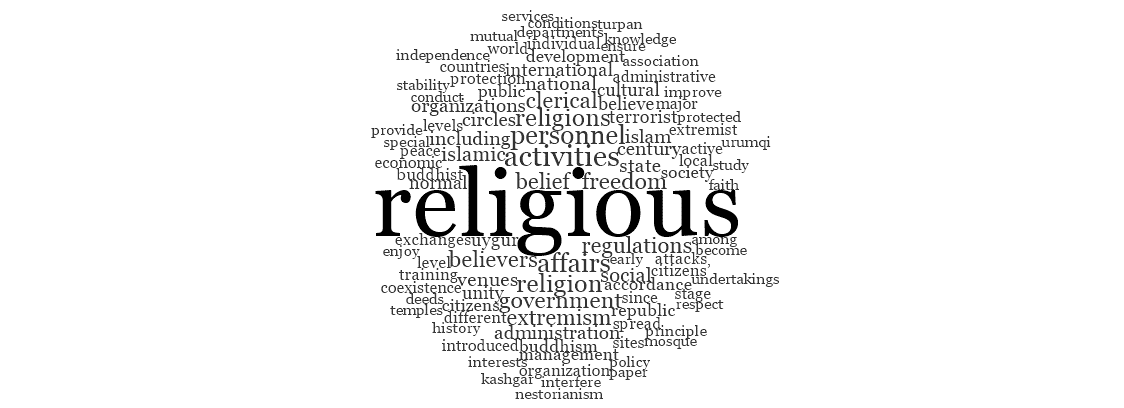Original document link: Click Here
Overview
This paper begins by giving a historical overview of inter and intrareligious conflict in Xinjiang and the surrounding regions to illustrate a lack of freedom of religion in the region. It claims that the total freedom of religion was achieved only after the People’s Republic of China was founded.
“The Regulations on Religious Affairs promulgated by the State Council of the People’s Republic of China, and the Regulations of Xinjiang Uygur autonomous region on Religious Affairs promulgated by the local government of Xinjiang both reflect the above principles of the Constitution that “citizens enjoy freedom of religious belief” and that “the state protects normal religious activities.”
In addition, the Regulations of Xinjiang Uygur autonomous region on the Work of Ethnic Unity and Progress, have provisions meant to protect religious customs. The paper further stipulates that the growth of terrorism in Xinjiang has led to the region adopting a policy of “de-extremization” to prevent and combat religious extremism. Here the paper mentions, the criminal law and the counter-terrorism law as examples of regulations and laws used to crack-down on extremists. The paper then boasts of the success of these “de-extremization” policies and concludes by highlighting the need to shape and localize the development of religions for the religions own benefit.
| 15 most common words: | |
|---|---|
| Word | Count |
| religious | 187 |
| activities | 37 |
| affairs | 30 |
| personnel | 30 |
| religion | 28 |
| religions | 27 |
| freedom | 23 |
| government | 23 |
| believers | 22 |
| clerical | 22 |
| belief | 21 |
| extremism | 21 |
| regulations | 21 |
| islamic | 17 |
| social | 17 |
| religious | 187 |
| activities | 37 |
Word cloud:
(Minimum 5 letters)
